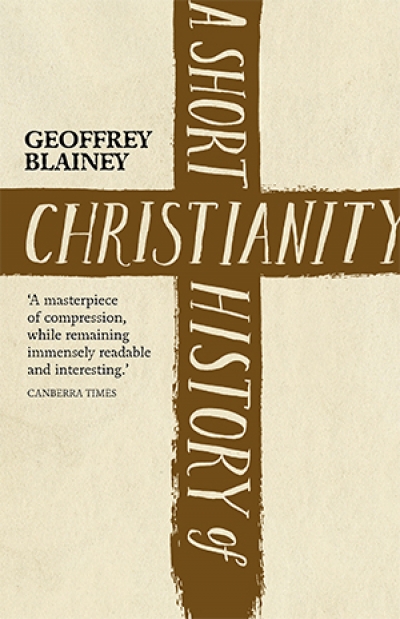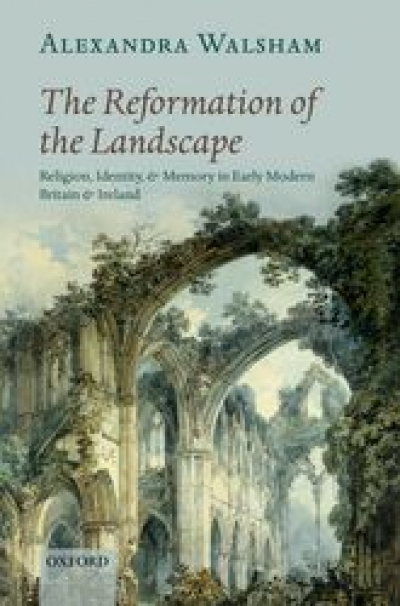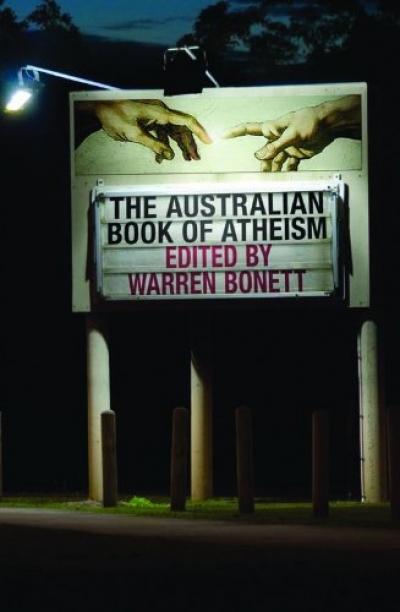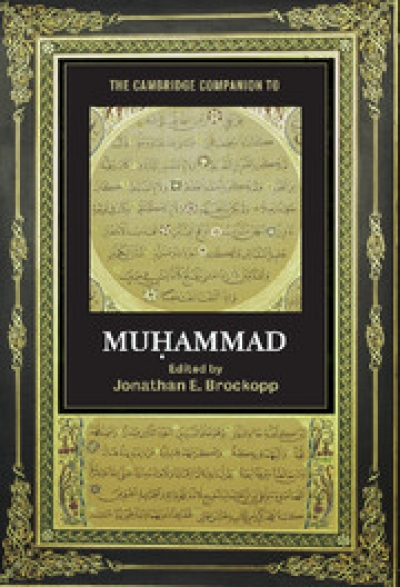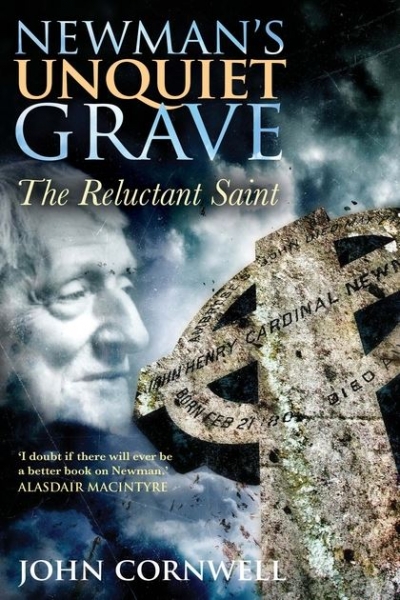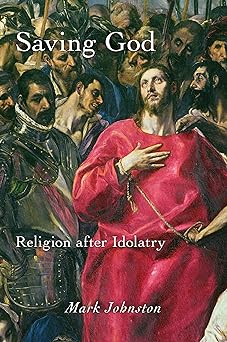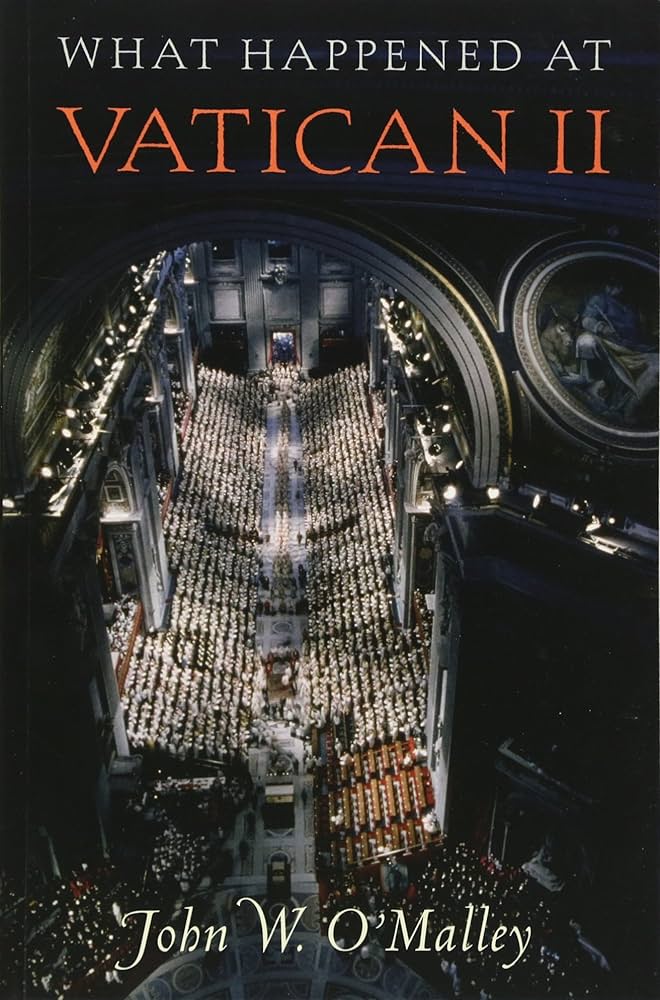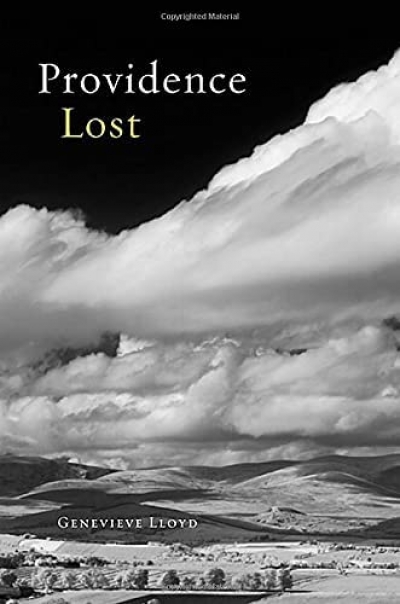Religion
Any recent ‘big picture’ church history will suffer by comparison with Diarmaid MacCulloch’s A History of Christianity (2009). That book discovers all manner of new evidence about this protean religion and opens up questions about its life in every age and across every continent. Even its subtitle, The First Three Thousand Years, wants us to appreciate that Christianity has to be understood through its origins in the Hebrew and Greek cultures of the millennium before Bethlehem. Geoffrey Blainey’s history begins more conventionally with the birth of Jesus.
... (read more)The Reformation of the Landscape: Religion, Identity, and Memory in Early Modern Britain and Ireland by Alexandra Walsham
Australian universities have long taught early modern (c.1500–1750) English/British and European history, but with Alexandra Walsham’s recent appointment as the first female to occupy a Cambridge history chair, there are now (with Oxford’s Lyndal Roper) two Melbourne-trained early modernist Oxbridge professors ...
... (read more)The Joy of Secularism: 11 Essays for How We Live Now edited by George Levine
The war of religion currently being fought with fusillades of paperbacks and feuilletons has taken a new turn. It started with an ambuscade by the ‘new’ atheists – also known as ‘militant’ or ‘Darwinian’ atheists – Richard Dawkins, Sam Harris, and the ubiquitous Christopher Hitchens (may he remain so). They were quickly joined by many sympathisers sharing the belief that peace, secularism, and rationality are under assault, not only from religious extremists, but also from the root religious ideas and attitudes that are presumed to nourish them.
... (read more)I am a doctor. Once I was a doctor of individuals, now I am a ‘doctor of populations’. Population health is about actions to improve the health of communities, nations, and the world. Challenges are many: the mobility and density of populations, contemporary desires and pressures, the safety of food in complex systems, poverty, the immense power of big businesse ...
Once mainly associated with shrill killjoys and desiccated reductionists, atheism has recently received a jolt of adrenaline from Christopher Hitchens, Richard Dawkins, and others. Yet while these writers delight in exposing religion’s philosophical deficiencies, their tone is predominantly negative. Fortunately, The Australian Book of Atheism goes beyond simply rehashing the New Atheists’ explanations of Why God Doesn’t Exist. Divided into ‘Overview’, ‘Personal’, ‘Education’, ‘Social and Cultural’, ‘Politics’, ‘Philosophy’, and ‘Religion and the Brain’, this collection offers a more nuanced picture of atheism than does the recent crop of celebrity-authored blockbusters.
... (read more)Irfan Ahmad: The Cambridge Companion to Muhammad by Jonathan E. Brockopp
In A Fundamental Fear (1997), Bobby Sayyid wrote about the spectre of Islam haunting the West. Important to this ‘hauntology’ is Muhammad: the last prophet of Islam. From the English chronicler Venerable Bede, Thomas Aquinas, and Martin Luther to the Pentagon’s defence intelligence secretary, William Boykin, many have depicted Muhammad as the obverse of everything the West and Christianity regards as good. In Summa contra Gentiles, Aquinas wrote that Muhammad ‘gave free rein to carnal desire’ and ‘those who believed in him from the outset were … beastlike men’. Striking is the parallel drawn by Luther: ‘The coarse and filthy Muhammad takes all women and therefore has no wife. The chaste pope does not take any wife and yet has all women.’ In TheChurch and the Political Problem of our Day (1939), Karl Barth, regarded as ‘the most important theologian since Thomas Aquinas’ by Pope Pius XII, made a peculiar observation: ‘It is impossible to understand National Socialism unless we see it in fact as a new Islam, its myth as a new Allah, and Hitler as this new Allah’s prophet.’ To the American evangelicals, he is a ‘demon-possessed paedophile’ (all unreferenced quotes from Frederick Quinn’s The Sum of All Heresies, 2008). The latest example is The Truth about Muhammad: Founder of the World’s Most Intolerant Religion (2007) by Robert Spencer.
... (read more)In October 2010 Hugh Brady, president of University College Dublin, sent colleagues around the world a copy of The Idea of a University(1854)by Cardinal John Henry Newman. As Newman approached beatification, President Brady recalled that UCD is the successor institution to the Catholic University of Ireland, which welcomed Newman as its first rector in 1851. Not many university leaders can aspire to sainthood, but establishing a new university and writing a classic text about the purpose of higher learning were only brief episodes in the long life of the most famous church intellectual of the nineteenth century.
... (read more)Saving God: Religion After Idolatry by Mark Johnston
Mark Johnston’s Saving God: Religion after Idolatry is an astonishing book. Its surprise consists in its topic, style, passion, range of religious and philosophical scholarship, and its daring blend of human depth and philosophical originality. Johnston describes it as an essay that ‘gradually evolves into a sort of jeremiad’. There are plenty of complaints, and it is at times a tirade, especially in the final chapter, but the term ‘jeremiad’ does too little justice to the book’s subtlety and persuasive intelligence.
... (read more)What Happened at Vatican II by John W. O’Malley & Keepers of the Keys of Heaven by Roger Collins
Popes have long been wary of Church Councils, seeing them as possible rivals to their claim to absolute authority. When the Council of Constance met in 1414, there were three contending popes, each elected by a set of cardinals, and each with political support across Europe. At its end, two had been deposed, and the third, Gregory XII, having been recognised as pope, agreed to resign. A commission of Cardinals and others appointed by the Council then elected a new pope, Martin V, in 1417. Constance also decreed that the pope was to convene councils on a regular basis. Martin conformed for a time, but the practice soon fell away. Popes have preferred to govern alone, with the help of the Roman Curia.
... (read more)Providence, understood as God’s governance and care of the world, has an important place in religion. Church leaders speak of it with a view to giving comfort in adversity, especially when there has been large-scale loss of life, as in terrorist attacks or earthquakes. There is often some defensiveness in this appeal to providence because of the tension between belief in a loving and all-powerful God and the occurrence of what could be seen as preventable evil. Genevieve Lloyd – the first female professor of philosophy appointed in Australia, now retired – discusses providence in Christian belief, especially in considering Augustine’s thoughts, in late antiquity, on divine justice and the ‘ordering’ of evil, and Leibniz’s bold attempt, in early modernity, to reconcile divine providence with evil, and freedom with necessity, in ‘the best of all possible worlds’. There is attention, too, to Voltaire’s sharp critique of facile optimism, and to Hume’s sceptical probing of what can be known with certainty in these matters. More generally, Providence Lost explores the long tradition of philosophical inquiry, from the Greek tragedians to modern times, that gave rise to a range of different conceptions of providence in the context of human freedom, necessity, fate and fortune.
... (read more)

